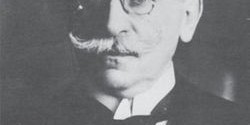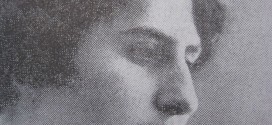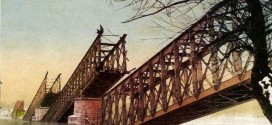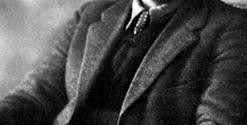The stories about heroism of the famous military leaders are being retold today, the songs are being sung, and the books are being written, while some military strategies are being studied at the most prestigious universities in the world. Thanks to their deeds and sacrifice in the wars – especially in World War I – that have plagued Serbia at the beginning of the 20th century, the names of those military commanders are engraved in golden letters in the world history.
The Unsurpassable Strategist, Field Marshal Radomir Putnik

Putnik first demonstrated his brave military leadership and excellent strategies in the Serbo-Turkish War; later, in the First Balkan War, his skilled command secured the victory at the battle of Kumanovo; and in the Second Balkan War – at the battle of Bregalnica – he excelled again. The skills, knowledge and insight of this Serbian Field Marshal were exhibited for the last time in World War I, when he organized all war plans of the Serbian army, as Chief of the General Staff of the Kingdom of Serbia.
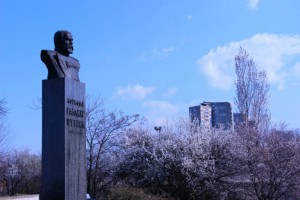
Many refer to him as the creator of the modern Serbian army, who implented variety of novelties – including the solving of tactical problems – within the education and training of officers. Under his influence, the Serbian army was modernized with new weapons, talented officers were put on key positions, and he did not let politics interfere with the military. He is remembered as the first Serbian Vojvoda (Field Marshal), and one of the wisest generals of the Great War.
The credit for a series of military victories that Serbia achieved under his command, and brilliant strategies that he devised, secured his place in the books and manuals about war, while a hard decision – which Putnik had to make – on the army’s withdrawal over the Albanian mountains, saved the honor of the Serbian army and the people. He was the holder of the highest domestic and international military decorations. Canadians, the allies of Serbia in the Great War, paid him homage by naming one of their mountains after him.
The Famous and Astonishingly Courageous Field Marshal Živojin Mišić
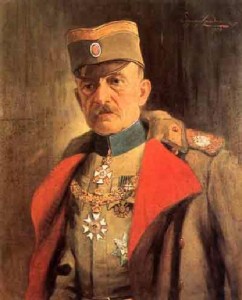
Inthe history of war,this Serbian Field Marshal and General is often called the most brilliant military leader of World War I. With his almost paternal concern for the people, land, and every soldier, Mišić has participated in all wars that Serbia foughtfrom 1876. to 1918.
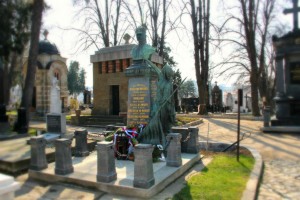
Mišić’s greatest merit is reflected in his extraordinary courage to take command of the 1stArmy, which was in very bad shape before the Battle of Kolubara. He quickly restored its shaken moral, and managed to seize the ridge of Suvobor with the exceptional tactical moves; and finally– he completely broke down the Austro-Hungarian army.
The Battle of Kolubara is one of the most important and most famous Serbian victories in the Great War, after which Mišić was promoted to rank of Field Marshal.
Although hewas retired and reactivated twice, this brave military leader became Chief of the Supreme Command in 1918. In September of the same year, the Serbian army – led by Živojin Mišić – has written one of the most glorious war history pages: in the Salonika front breakthrough.
The Insightful Field Marshal Stepa Stepanović
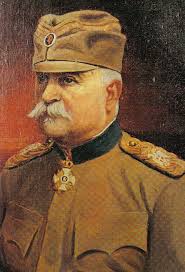
Participating in the Serbo-Turkish War, in the Serbo-Bulgarian War and in the Balkan Wars, Field Marshal Stepanović obtained wisdom and extensive military experience, which he applied with the utmost successin World War I. On July 23, 1914, due to absence of Chief of the General Staff Putnik, Stepanović was commissioned as his substitute. His first important task was to mobilize and concentrate the Serbian army, which was in disorder due to the lack of funds, ammunition and uniforms.
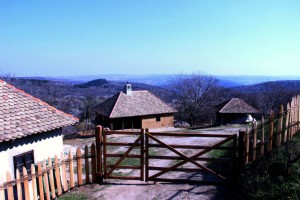
With Stepanović’s agility and resource fulness, almost all units took their positions until August 10, where as he assumed command of the 2nd Army. Performing a complex march-maneuver and brilliant strategic clustering of the 2nd Army in prime positions, Stepanović noted that the massifs of the mountain Cer may have great significance in the imminent battle. Thanks to this decision, the Serbian army won the day after nearly ten days of heavy and bloody fighting; it was the first Allied victory in the Great War.
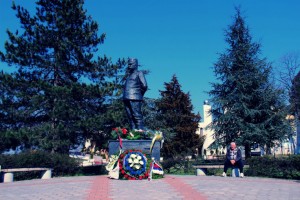
For this achievement Stepanović obtained the rank of Field Marshal and his bold exploits continued until the end of the war, when the 1st and 2nd Army in conjunction with the Allied forces broke through the enemy lines by carrying out difficult operations, in a manner previously unseen in the history of warfare. They pursuedthe shattered Bulgarian and German forces, until September 29, 1918, when Bulgaria was forced to capitulate: this paved the way for the eventual liberation of Serbia.
The impressive 45 years long military career: Field Marshal Petar Bojović
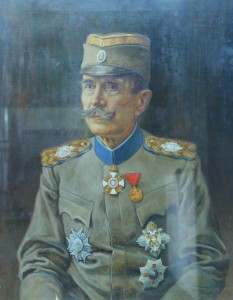
In 1872.whileparticipatingin the Serbo-Turkish War, Field Marshal Bojović demonstrated courage and extraordinary military and strategic capabilities. These features will accompany the famous commander in allwars that Serbia waged in the period from 1876 to 1918. Although he was wounded at the very beginning of World War I, Bojović continued to command the 1st Army, with which he crossed the Sava river, liberated Donji Srem, and participated in the Battle of Drina.
Increasing pressure of the superior enemy, forced the Serbian army to retreat across Kosovo in 1915, and the Field Marshal Bojović was appointed as the commander of troops in new areas. One of the most importantcontributions of this great Serbian military leader is the fact that he preventedtheonslaughtof Bulgarianarmy in Kosovo, and thereby facilitated the withdrawal of the Serbian army towards the Adriatic coast. In the same year, Field Marshal Putnik relinquished the position of Chief of the Supreme Command due to illness, and Bojović succeeded him.
With his mettle and exceptional negotiating skills Bojović has played an important role in the transport of the army to the island of Corfu; hehelpedthe army’s recovery, and actively participated in its reorganization and transfer to the Salonika front.
Due to a conflict with the Supreme Command of the Allied forces in June 1918, Bojović resigned as Chief of Staff and for the second time he became the commander of the 2nd Army. In a large offensive at Salonika, together with Stepanović’s 1st Army, he broke through the enemy front after fierce and relentless fighting, andpursued the Bulgarian army until its capitulation. For this glorious victory Bojović was promoted to rank of Field Marshal.
The Serbian Field Marshals shall be remembered for their courage, dignity, honor, hard work and ingenious war strategies.
Source: serbia.com
 Управа за сарадњу с дијаспором и Србима у региону Управа за дијаспору
Управа за сарадњу с дијаспором и Србима у региону Управа за дијаспору
